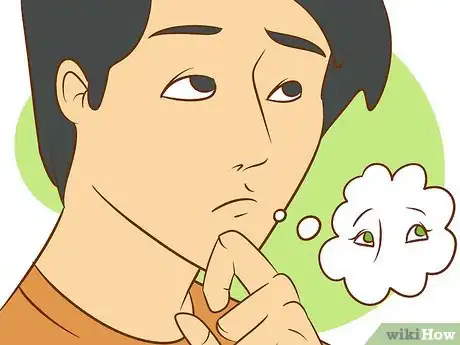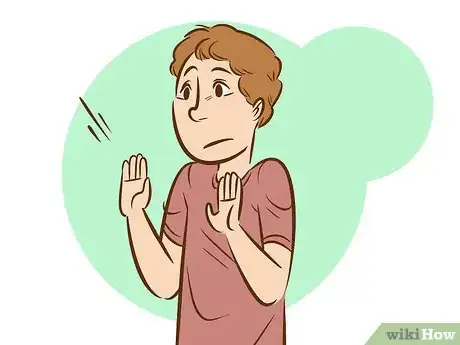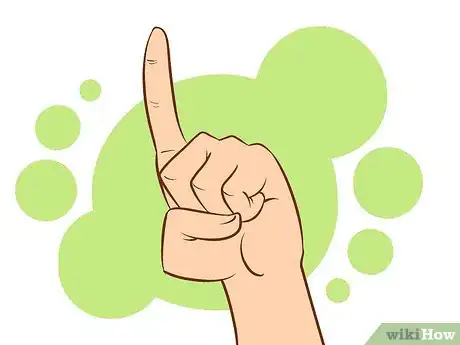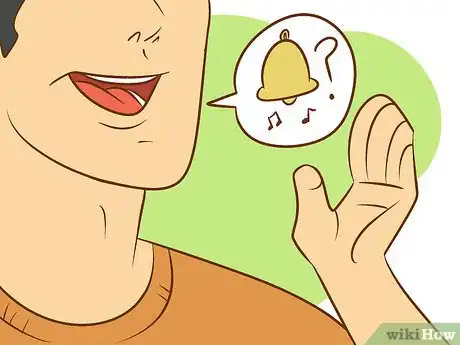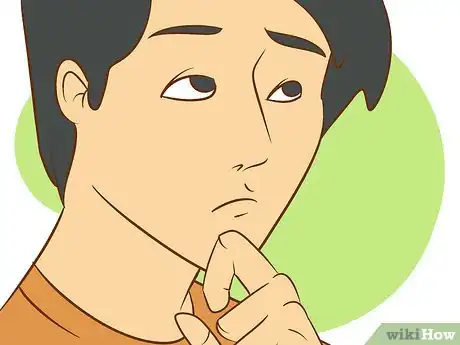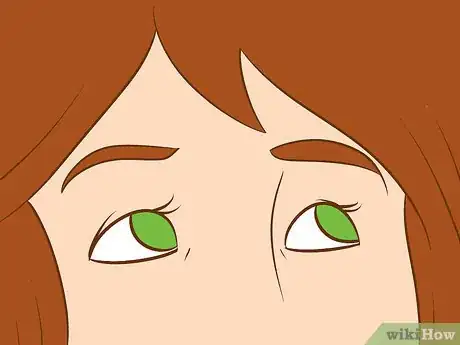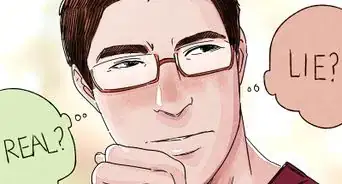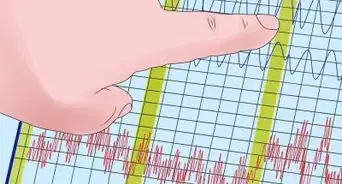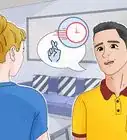This article was co-authored by Ebony Eubanks, MSW, ACSW, CAMS-II. Ebony Eubanks is a Therapist, and Founder and CEO of Peaceful Living Counseling and Professional Services of Philadelphia, PA and in Hockessin, DE. With over a decade of experience providing counseling and coaching to individuals, couples, and groups, she specializes in depression, anxiety, couples work, life guidance coaching, and anger management. Ebony holds a Master’s in Social Work from Temple University and is a member of the Academy of Certified Social Workers. She is a Certified Anger Management Specialist-II, Level II trained Gottman Couples Therapist. and Certified Gestalt Therapist. Ebony also holds additional certifications in Advanced Clinician Training.
This article has been viewed 210,966 times.
Spotting a liar can be very difficult. If you suspect that someone might not be being honest with you, here are some ways you can gain more clues.
Steps
Understanding Lie Detection
-
1Think about the person's baseline behavior. "Baseline" behavior means how they normally behave, when they aren't under stress. Knowing a person's baseline behavior is important, because you can compare their current behavior to their baseline to see if something is off.[1]
- Different cultures have different norms with regards to eye contact. Western cultures usually consider it a sign of respect and engagement, while some Eastern cultures consider it rude.
- Certain disabilities, like ADHD and autism, can involve unusual baseline behavior. For example, perhaps your autistic friend usually fidgets and avoids eye contact. You ask her where she was last night, and she plays with her hair, looks at your feet, and says she was watching movies at home. Even though this behavior might signal lying in non-autistic people, it's normal for her, so you can assume she's telling the truth.
-
2Recognize that people usually feel uncomfortable when they lie. This means that there's a lot of overlap between signs of lying and signs of stress. This can include talking too much and talking quickly.
- Be cautious about jumping to the conclusion that someone is lying when they look stressed. It's possible that something else is bothering them.
Advertisement -
3Know that basic questions are unlikely to elicit eye signals. When speaking with someone and you ask them about how their day has been, they usually will reply “Oh, it was fine. How was yours?” You won't see a lot of eye signals from this; these are almost programmed responses.
-
4Be careful about what you do. It can be hurtful to accuse someone else of lying, especially if it turns out that they were telling the truth. Avoid jumping to conclusions, or harming their reputation without very good cause.
Watching Their Eyes
-
1Ask the person questions about the thing you're curious about. While you talk to them, watch their eye movements and body language.
-
2Compare their eye contact to their baseline. The stereotype is that liars will typically avoid eye contact, because they feel bad about lying or they worry they'll get caught. Many people know this stereotype, and so some liars will overcompensate by making a lot of eye contact. Consider whether the person is making an unusual amount of eye contact.
-
3Notice which way their eyes are looking, without jumping to conclusions. Some researchers have noticed patterns in the directions that people look, related to when they are remembering something and when they are making something up. However, new research has shown that this method is very unreliable,[2] and that it isn't helpful in detecting lies.[3]
- Looking to your left (their right): Imagining something, or telling a lie
- Looking to your right (their left): Remembering something
- Thus, the person in the above image would be telling the truth.
Community Q&A
-
QuestionWhat does it mean if they look down and to the right?
 Community AnswerIt means they can't maintain eye contact because they are distracted or nervous about something. If you're in a quiet place without distractions, they might be lying to you.
Community AnswerIt means they can't maintain eye contact because they are distracted or nervous about something. If you're in a quiet place without distractions, they might be lying to you. -
QuestionDoes everyone look to the left side, even though he or she may be right-handed?
 Community AnswerNot everyone does, but what hand you most often use has nothing to do with it.
Community AnswerNot everyone does, but what hand you most often use has nothing to do with it. -
QuestionWhat does it mean if they look up and to the right?
 Julia _MayaZCommunity AnswerThis means that they are trying to come up with a possible lie or answer.
Julia _MayaZCommunity AnswerThis means that they are trying to come up with a possible lie or answer.
References
- ↑ https://www.psychologytoday.com/us/blog/hope-relationships/201507/6-ways-detect-liar-in-just-seconds
- ↑ https://www.independent.co.uk/news/science/the-truth-about-lying-its-the-hands-that-betray-you-not-the-eyes-7936522.html
- ↑ https://www.learning-mind.com/eye-movements-when-lying/
- ↑ https://medium.com/@101/how-to-detect-lies-body-language-5a184e90337b
